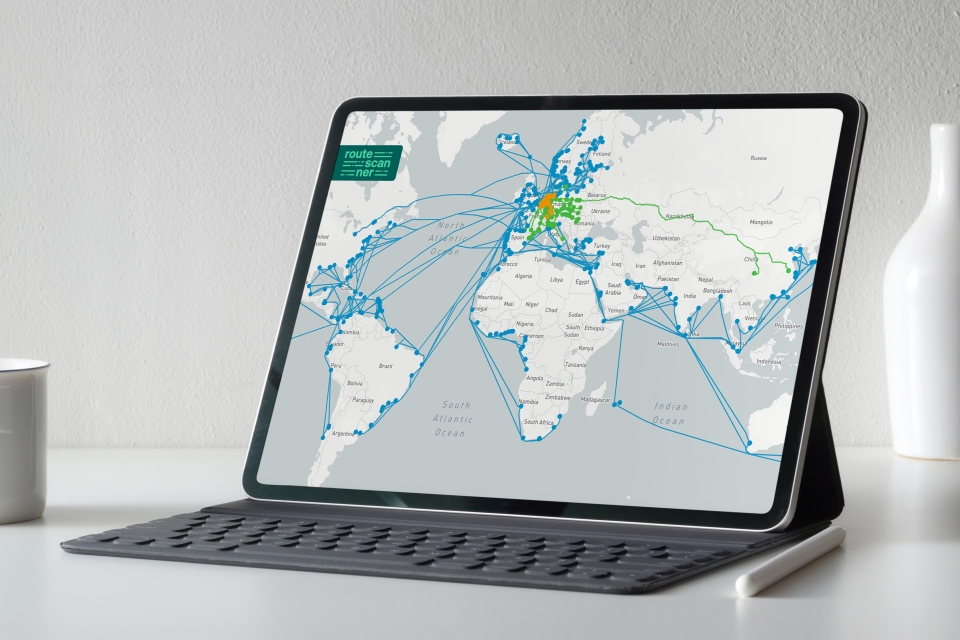North Sea Port has also started to visualise its container connections online via Routescanner. This means that all Dutch and Belgian seaports now use Routescanner to provide insight into their connectedness worldwide via Direct Connections.
Routescanner is an online route planner for containers. With a mission to make the global supply chain more efficient and sustainable, the platform shows not only the fastest container routes, but also the most sustainable ones based on CO2 emissions.
Also read: Approval for Routescanner’s CO2 calculation method for containers
North Sea Port and inland ports join
After Port of Antwerp-Bruges, Port of Rotterdam, Port of Amsterdam and Port of Moerdijk, North Sea Port has now joined. In addition, inland ports such as Limburg (LIOF), MCA Brabant and Overijssel are also using the network visualisation as a marketing tool.
Incidentally, the Routescanner network does not stop at the borders of the Netherlands and Belgium. Ports such as Duisport, JadeweserPort, Gothenburg, Strasbourg and Sohar also promote their container network via Routescanner on their websites.
The addition of North Sea Port results in increased transparency in global logistics. In this way, users from around the world can easily view up-to-date sailing and driving schedules and plan the most suitable route for them via their preferred port.
High accuracy and sustainability
Peter Van Parys, COO at North Sea Port: ‘Participation in Routescanner provides the necessary transparency regarding intermodal connections for North Sea Port customers. This is achieved through the global coverage and up-to-date timetable data provided by Routescanner. In this interconnected global supply chain, where time and information are critical, Routescanner enables our customers to navigate the complex web of logistics with high accuracy and sustainability.’
This milestone illustrates the ongoing development in the logistics sector and the importance of cooperation in visualising all container networks.
225 connected partners
Shippers and forwarders from around the world use Routescanner‘s online container transport platform to search for the most efficient and sustainable routes. Besides major deepsea operators, virtually all inland, rail and shortsea operators within and outside Europe also share their commercial sailing and driving schedules with the platform.
Routescanner now has more than 225 connected partners. Every day, Routescanner processes more than 950,000 schedules and there are more than 4500 terminals in the network worldwide. Routescanner was founded in 2021 and is based in Rotterdam.
Picture: All container connections from the seaports of the Netherlands and Belgium in one map (photo Routescanner).
Also read: Port of Rotterdam, Groningen Seaports and North Sea Port to standardise port infrastructure








